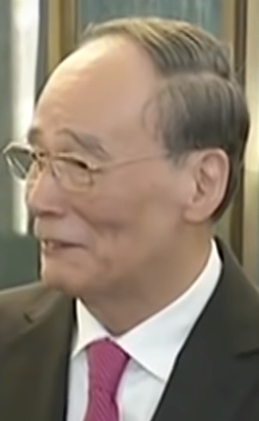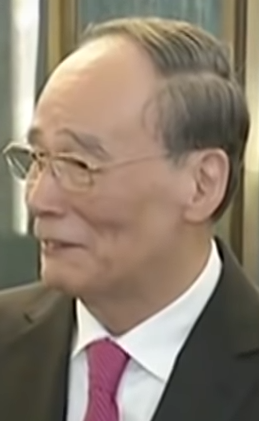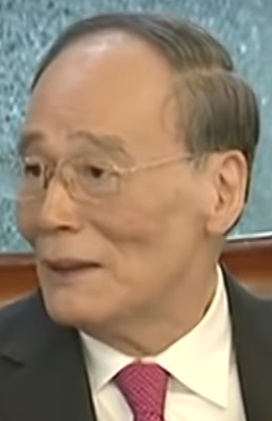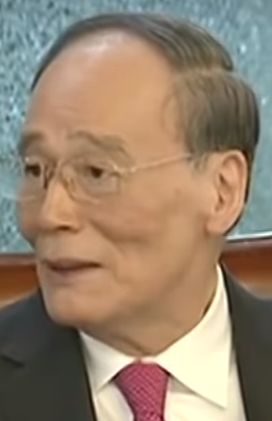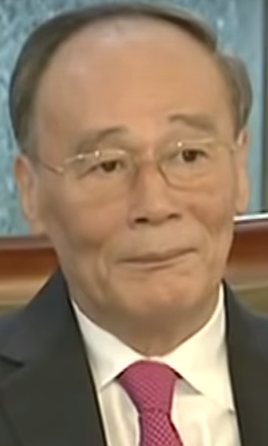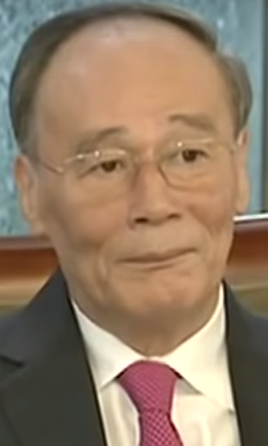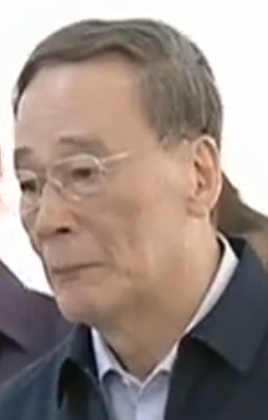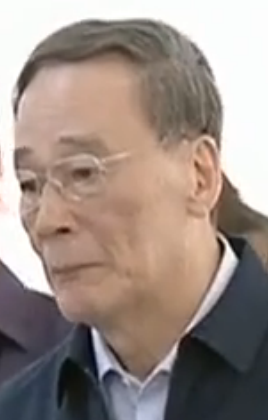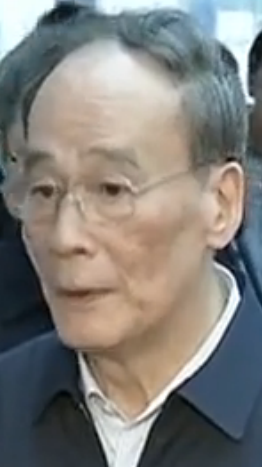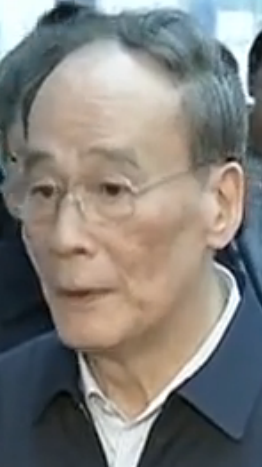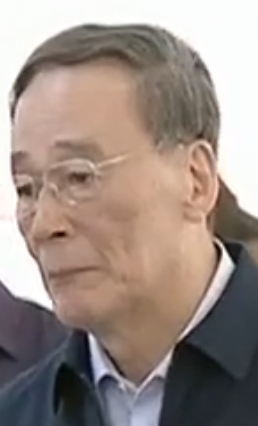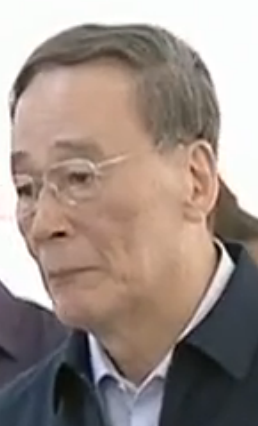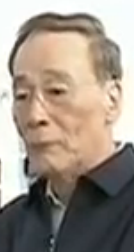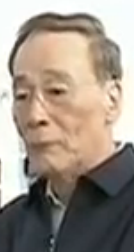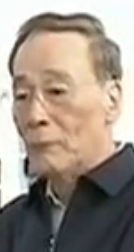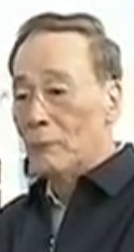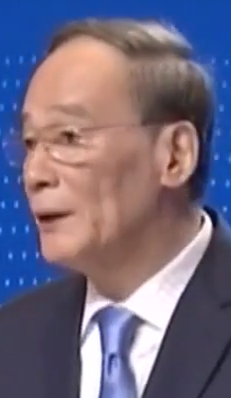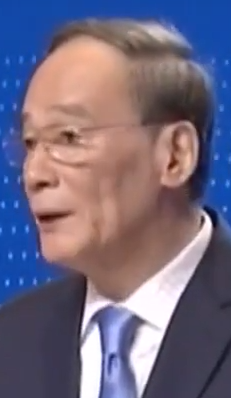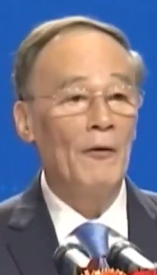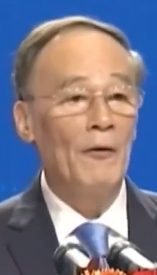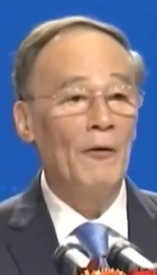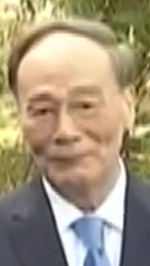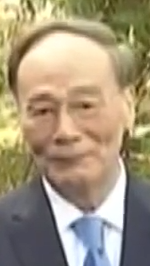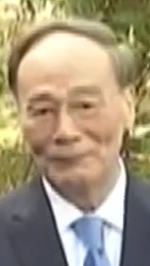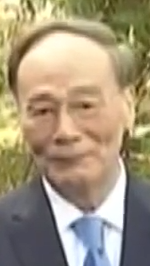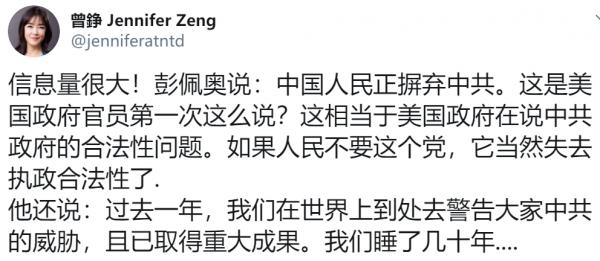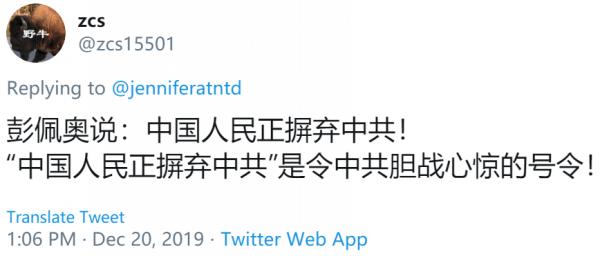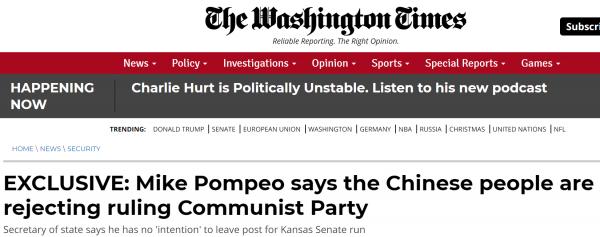| 鸠阿杨西皆为配角回看主角岐山写真对比 |
| 送交者: Pascal 2019年12月21日01:00:16 于 [五 味 斋] 发送悄悄话 |
|
“中央电视台现任工作人员给我发私信说 1.这段视频拍摄地点绝对不是北京钓鱼台国宾馆 2.宾主背后放置玻璃屏风 央视拍摄规则大忌 3.清晰度不够 正国级人物拍摄 央视一律使用8K专业摄像机 4.桌上没有摆放鲜花 摄像色温低于5000K” —— 路安时评 2019年12月17日 之前鸠山由纪夫 阿齐兹 杨洁篪 西索达 面容特写前后对比 均为配角 回看主角王主席(副)面部放大写真前后对比 为的是 观摩上述五位国际领袖面容 是怎样惊天地逆生长 返老还了青 2019年12月16日:
2019年12月上旬:
http://www.xinhuanet.com/politics/201812/12/c_1123843975.htm 2019年12月1日:
https://www.youtube.com/watch?v=0mvLnDFyE2w 始自 13:10 ******************************
By Bill Gertz - The Washington Times - Thursday, December 19, 2019 China’s people want to live in a free society and do not support the ruling Communist Party, Secretary of State Mike Pompeo said. Additionally, current foreign policy is not aimed at decoupling the United States economically from China but in making sure Beijing competes fairly in the global economic arena, Mr. Pompeo said in an interview with The Washington Times on Wednesday. Mr. Pompeo, a former congressman from Kansas who earlier held the post of CIA director, also said he has no immediate plans to step down and run for the open Senate seat in his home state next year. “I’m going to stay here as long as President Trump will have me here and that’s my intention,” he said. The secretary, in a concise review of the past year, said he has made progress in improving training for Foreign Service officers, in boosting U.S. support for Israel, and in implementing the pressure campaign against Iran aimed at limiting the proliferation of nuclear arms and ending Tehran’s global terror campaigns, while reducing threats to the strategic Strait of Hormuz. “We also made real progress this year in informing the world of the threat posed by the Chinese Communist Party,” he said. “We were asleep at the switch for a couple of decades as this threat continued to grow, and I think President Trump set the conditions where we could go speak around the world and talk to our colleagues around the world to demonstrate to them that — while there’s enormous opportunity to sell goods in China and to create good things for the Chinese people — that the Chinese Communist Party presents real risks, and to begin to think materially, concretely, substantively about how to respond to it.” Mr. Pompeo, a West Point grad and former businessman before serving six years in the House, elaborated on a recent speech when he made a sharp distinction between the Chinese people and the Communist Party of China that dominates all aspects of life in China. “The Chinese Communist Party, [which] controls China, is an authoritarian regime and a combination of Marxist-Leninist ideology and Han Chinese nationalism,” Mr. Pompeo said, citing repeated failures by Communist leaders to follow through on agreements and commitments. The ruling party “denies basic freedoms to its people — whether it’s the egregious activities that take place in Xinjiang, or the Chinese Communist Party’s failure and rejection to live up to their commitments in Hong Kong.” Chinese General Secretary Xi Jinping also promised not to place armaments in the South China Sea and violated that commitment, Mr. Pompeo said. On the issue of climate change, Beijing also committed to following the Paris accords to limit carbon dioxide emissions by 2030. “They have acted in ways that are fundamentally inconsistent with that, building coal-fired power plants, exporting technology that will generate increased carbon output,” he said. “America didn’t place this demand on them. The Chinese Communist Party committed to doing this, and they make international promises and then reject them.” Mr. Pompeo said it is important to draw the distinction between the party apparatus that is controlling the information flow, controlling military activity, now adopting a draconian system of social credit “to change the behavior of the Chinese people.” “It’s important that the United States recognize the greatness of the people of China and their capacity for desiring freedom and wanting nothing more than to live their lives, and the Chinese Communist Party that has a very different mission set,” he said. Harsh reaction Mr. Pompeo’s recent comments on China and the ruling party have triggered a harsh reaction from Beijing. Chinese Foreign Minister Wang Yi on Friday accused the United States of “slander” against the Chinese system, an indirect reference to Mr. Pompeo’s criticism. The negative influence of the party is also harming the U.S., Mr. Pompeo said, as seen in China’s limiting broadcasts of the National Basketball Association’s Houston Rockets after an official tweeted support for pro-democracy protests in Hong Kong. “So a general manager of an NBA basketball team sends out a single tweet that could not possibly have made it through the Chinese information firewall, at least at any scale, and this is global conflict?” the secretary of state said. “No, the Chinese people just want to watch the NBA.” Last week, China pulled broadcasts of Premier League soccer player Mesut Ozil, a German Muslim of Turkish origin, after he tweeted criticism of Chinese repression of Muslims in western China. “We suffer lots of political noise and we thrive on this in America, we are very tolerant, we have free speech rights, where the to and fro matters and that freedom is important,” Mr. Pompeo said. “This isn’t about what they’re doing to some soccer player or some person in America,” he added. “This is to their own people. I think it’s important that American foreign policy recognize this and attempt to respond to it in a way that will do the right thing for the United States.” But Mr. Pompeo also said he does not support the idea of “decoupling” economically from China, an idea advocated by some critics of China’s efforts to achieve global supremacy by using its economic and other power to diminish its enemies, in particular the United States. “Our policy doesn’t advocate for decoupling. Our policy simply demands that Chinese trade be engaged in a way that’s fair, reciprocal and transparent,” Mr. Pompeo said. “The decoupling will only occur if China decides not to engage in trade in that way. That will be their country’s decision.” China’s use of so-called “debt-trap diplomacy” — investing funds in nations’ infrastructure and then exploiting later financial defaults to take control over such assets as ports and railroads could well lead to U.S. economic disengagement, he added. “If [the Chinese] want to continue to engage in activity that would violate the Foreign Corrupt Practices Act if it were engaged in by an American company or individual, if they want to continue to require American businesses that invest in China to comply with a set of rules that Chinese investment here in the United States doesn’t, the end result … could well end up being some form of decoupling, but I hope not,” he said. Mr. Pompeo said President Trump’s objective in applying tariffs and tough trade measures toward China has been to change Beijing’s behavior and induce fairer practices. The two sides announced a “Phase One” deal last week putting off a new round of tariffs in exchange for greater purchases of U.S. goods and some policy changes by China. The United States wants to see lower tariffs, lower nontariff barriers, increased trade and greater transparency as the talks progress. “If we get those things, the decoupling won’t take place,” Mr. Pompeo said. “In the end, the Chinese Communist Party will get a vote in this, and they’ve got to decide if they want to compete or if they want to be protectionist.” Getting the ‘full story’ During his speech at the Hudson Institute in October, Mr. Pompeo also stated that the American people were not hearing the “full story” about the kinds of activities being carried out by the Chinese. First, U.S. government resources, until recently, were not properly arrayed to deal with the challenges posed by China’s system, and the U.S. news media also was not focused on the problem of global terrorism and efforts to counter it. “We were focused on Afghanistan and the Middle East and counterterrorism,” he said. “If reporters were doing foreign policy, it was often in the context of American wars in the Middle East.” That has begun to change under new policies of the Trump administration, creating a shift in both government policies and news media coverage of issues related to China. Recent news reports have helped publicize the Chinese crackdown on ethnic Uighurs in western Xinjiang province, where more than 1 million people are detained in concentration camps, as well as The Washington Times’ reports on Chinese military developments and intelligence activities are helping to educate the public, the secretary said. “I think that’s important that people understand the truth about what’s taking place there,” he said. Another problem is substantial efforts by the Chinese Communist Party to use disinformation to “deny the reality of these very things that take place,” Mr. Pompeo said. Mr. Pompeo in the October speech also took aim at what he called the “permanent class of China lobbyists in the United States” who “sell access to Chinese leaders and connect business partners.” China’s use of former American officials as lobbyists is part of the major information operations and influence activities by Beijing. “There are significant Chinese government resources being applied to shape the narratives of what’s taking place and what the relationship between the United States and China ought to be,” he said. The First Amendment protects the rights of Americans to petition government but disinformation can skew debates over issues and policies. “These debates have to take place against the background of the facts and not be dominated by some faction that has an interest in doing something that may well benefit them but cumulatively doesn’t benefit the United States of America,” Mr. Pompeo said. “That’s the risk that arises from the activity that I referenced there.” On the subject of arms control with Russia, and potentially in the future with China, Mr. Pompeo said he is seeking to broaden the scope of the topic beyond controlling weapons to the larger goal of strategic stability. The definition of strategic weapons has expanded beyond nuclear missiles and warheads to new capabilities like cyberweapons, space arms and hypersonic missiles. “It is no longer the case that strategic stability conversations can be complete and sufficient with just the United States and Russia. … You have to bring China into this conversation.” The Trump administration has sought to engage China in arms talks, but so far Beijing has resisted U.S. appeals. A U.S. official said China may be coaxed into joining arms talks if the United States seeks to play the “Russia card” against China. For example, arms talks could be held on intermediate-range missiles that could lead to both Washington and Moscow deploying the arms near China. On the issue of extending the 2010 New START nuclear arms agreement with Russia past its February 2021 expiration date, Mr. Pompeo said the United States is “looking at whether it makes sense for the United States.” “We’ve made no decision. We’re evaluating it, but New START is old school,” he said. “Two parties, given the nature of today’s world, is a relatively narrow scope of coverage.” |
|
|
|
|
 | |
|
 |
| 实用资讯 | |
|
|
|
|
| 一周点击热帖 | 更多>> |
|
|
|
| 一周回复热帖 |
|
|
|
|
| 历史上的今天:回复热帖 |
| 2018: | 借问候之名,行显摆之实。不过这风景真 | |
| 2018: | 金斯伯格八十多岁诊断出癌症,看你们幸 | |
| 2017: | 司法部长在国会山的压力下同意调查稀瘌 | |
| 2017: | 美国要开发自己的稀土矿了。川普要打破 | |
| 2016: | 北卡州有望年底废除“厕所法案”,真相 | |
| 2016: | 换了 | |
| 2015: | 上周吃饭时得知,朋友的朋友又一个得了 | |
| 2015: | 请教皮肤姐: | |
| 2014: | 老Q看了这篇文章估计又要火冒三丈了 | |
| 2014: | 我们满蒙的生活方式 | |




